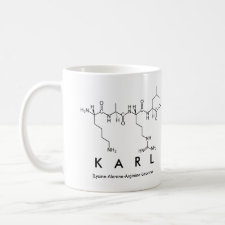
Authors: Koeber R, Fleischer C, Lanza F, Boos KS, Sellergren B, Barceló D
Article Title: Evaluation of a multidimensional solid-phase extraction platform for highly selective on-line cleanup and high- throughput LC-MS analysis of triazines in river water samples using molecularly imprinted polymers.
Publication date: 2001
Journal: Analytical Chemistry
Volume: 73
Issue: (11)
Page numbers: 2437-2444.
DOI: 10.1021/ac001483s
Abstract: A novel highly selective sample cleanup procedure based on the use of molecularly imprinted polymers (MIPs) as solid-phase extraction materials has been evaluated with respect to its applicability and routine use in environmental analysis. The method comprises the combination of a restricted access material (RAM) and a MIP allowing a selective sample preparation to be achieved in the online mode. This combination is called the size-selective sample separation and solvent switch (six-SPE), The RAM column combines size exclusion and adsorption chromatography, reducing the concentration of matrix molecules by a cutoff of 15 kDa, The MIP column selectively retains the triazine analytes whereas the residual matrix is not retained and separated completely. Thus, the automated RAM- MIP is capable of excluding all matrix and nontarget compounds. The cleaned and enriched extract is subsequently eluted to an HPLC column and analyzed by LC-MS. A complete on-line analysis cycle including multidimensional solid-phase extraction, separation, and detection takes less than 15 min. Terbuthylazine, atrazine, propazine, simazine, ametryn, prometryn, irgarol, and also the metabolites deethylatrazine and deisopropylatrazine can be determined without any matrix interferences, e,g,, by humic acids, The whole setup is fully automated and may be continuously operated, Nonspecific interactions with the polymer are below 1% in all cases. The accuracy of the LC-MIP-LC-MS system was controlled using a certified reference material (Aquacheck), The applicability of the method to the cleanup of real samples was demonstrated by injection of contaminated river water samples. The stability of different polymers was tested by consecutive injections, and it was shown that the performance of the materials did not vary even after more than 300 enrichment and desorption cycles



Join the Society for Molecular Imprinting

New items RSS feed
Sign-up for e-mail updates:
Choose between receiving an occasional newsletter or more frequent e-mail alerts.
Click here to go to the sign-up page.
Is your name elemental or peptidic? Enter your name and find out by clicking either of the buttons below!
Other products you may like:
 MIPdatabase
MIPdatabase









